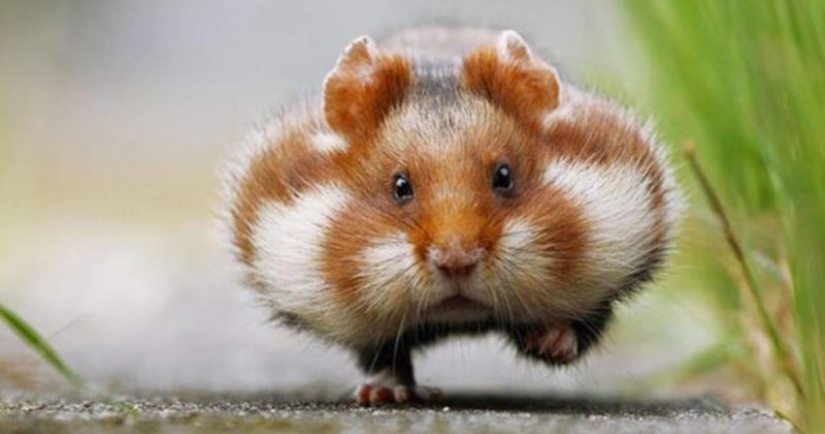Veterinarians told about the unenviable share of hamsters — illness, suffering, early death
Categories: Animals | Children
By Pictolic https://pictolic.com/article/veterinarians-told-about-the-unenviable-share-of-hamsters-illness-suffering-early-death.htmlThe unkind joke that the task of a hamster is to show a child death is not far from the truth. Scientists conducted research and told about the short and joyless life of small pets. It turned out that the chance to live the time allotted by nature for these rodents is very small. Moreover, their whole life in captivity is a continuous suffering, illness and injury.

Hamsters have always been popular pets. Small, unpretentious and cute animals are very popular with children. It is difficult to find a person who did not have such a fluffy pet as a child. At the same time, many have difficult memories associated with hamsters. These animals tend to die suddenly, sometimes for no obvious reason.

For a long time, the fate of hamsters was of little interest to scientists. But scientists from The Royal Veterinary College, UK, recently conducted the first ever large-scale studies of the health and life expectancy of these rodents. Veterinarians were interested in what pet hamsters die from and what conditions precede this sad event.
The researchers found that the average life expectancy of a hamster is only 21 months. Centenarians among them are very rare, and many die in general during the first months of life. To find out the secrets of life and death of these crumbs, scientists studied the diseases of 4 thousand animals from different countries of the world. At the same time, they found that golden (Syrian), Dzungarian and Roborovsky hamsters are most prone to premature death.
The main ailments leading to the early death of rodents have also been established. In the first place is the disease, popularly known as "wet tail". This is a bacterial infection that causes diarrhea, dehydration and most often has a fatal outcome. Its cause is poor conditions of detention, and more simply, unsanitary conditions.

In second place is death from the bites of other hamsters. Rodents often fight among themselves and at the same time cause serious injuries to each other. As a rule, these are fights for territory, which is very limited in the cage. In the third place, scientists placed death due to too overgrown claws. On the fourth — because of regrown and timely not erased teeth. The last place is occupied by deaths resulting from various minor injuries. Hamsters get them accidentally in a cage, or through the fault of a person.
Dr Dan O'Neill from the Royal Veterinary College commented on the results of the study as follows:

The president of the British Veterinary Association, Justine Shotton, added that people who keep hamsters at home need to treat pets more carefully. It is important to monitor the living conditions and needs of the animal, so as not to turn its existence into torture. In addition, Shotton believes that before getting a hamster, you need to weigh the pros and cons. It is important to know for sure that this animal suits you and that you will be able to create favorable conditions for it.
Recent articles

It's high time to admit that this whole hipster idea has gone too far. The concept has become so popular that even restaurants have ...

There is a perception that people only use 10% of their brain potential. But the heroes of our review, apparently, found a way to ...

New Year's is a time to surprise and delight loved ones not only with gifts but also with a unique presentation of the holiday ...